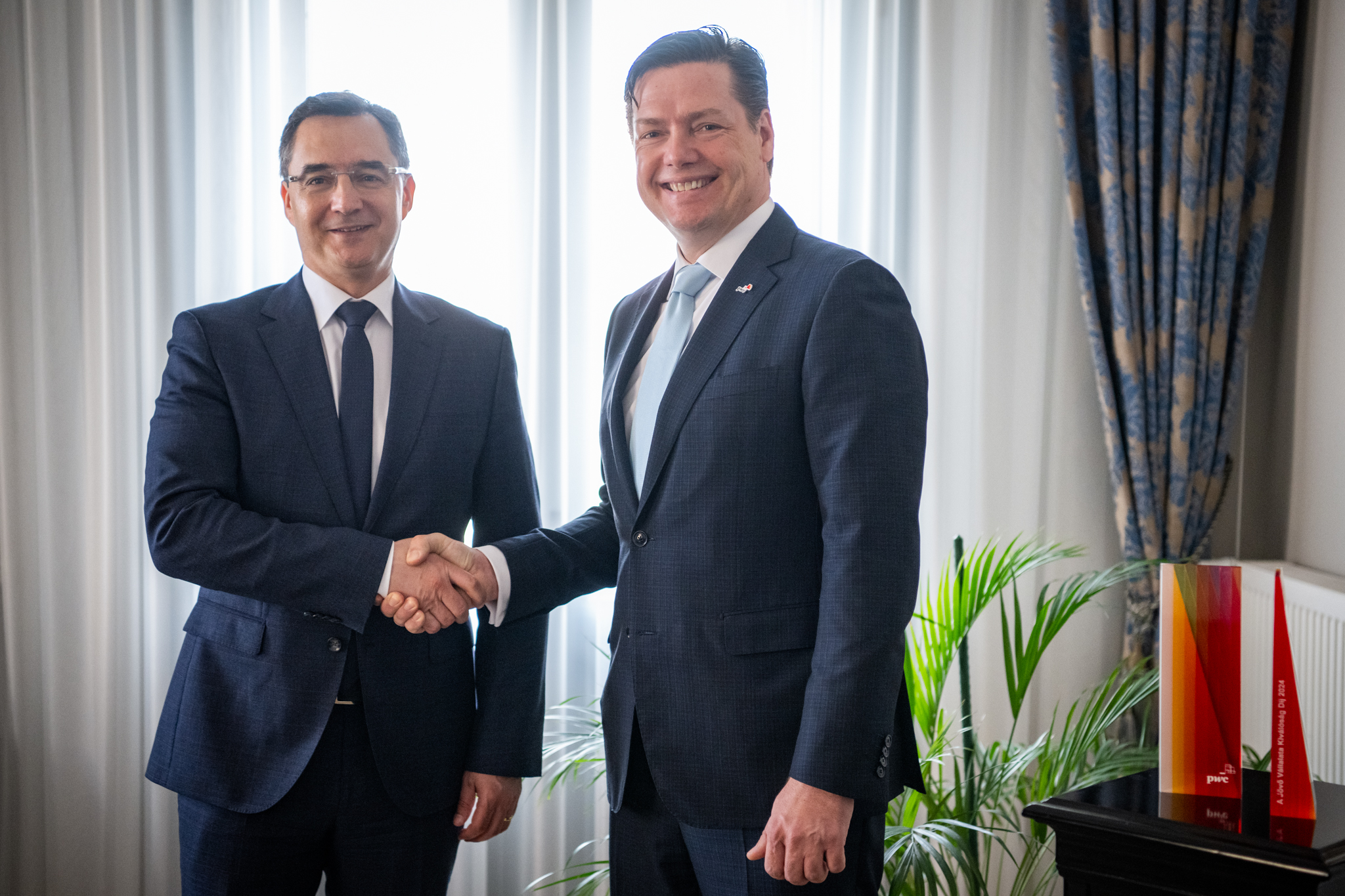Hungary Plans to Take the Lead in 5G Worldwide

As the world readied for the introduction of 5G technology — and the myriad of changes it is anticipated to bring, industry-wide — Hungary decided not just to await events, but to stake a claim in spearheading introduction of the technology in order to reap its benefits.
The country’s 5G Coalition has gathered a wide-range of interested parties to ensure Hungary can be among the first countries to bask in the 5G dawn.
Government institutions, companies, business chambers, universities and professional and civic organizations came together to establish the 5G Coalition (5G Koalíció or 5GK for short in Hungarian) in June 2017. Initiated as part of the government’s Digital Welfare Program, the founding declaration of was signed by almost 50 companies.
At the time of publication, the body now comprises some 155 professionals in five working groups. Its most important focus is to aid the development of 5G mobile telecommunications technology in the country.
Furthermore, the coalition aims to offer a strategic and professional platform for 5G innovation and development in Hungary. The body says it keeps an open-door policy to anyone who is committed to innovation in the sector and wants to work with coalition members, using their knowledge and professional experience to help achieve Hungary’s 5G goals.
The 5GK aims to tap into both the physical and human resources of Hungary. On the one hand, the country’s digital infrastructure is among the best not only in Europe, but globally, which has been recognized by independent research and surveys in the past years. (See also Market Talk on page 14.) On the other hand, the 5G Coalition aims to leverage the country’s engineering expertise, the university ecosystem and vocational training pool, as well as team up with the local SME sector.
Under a draft strategy 5GK published this March, Hungary is seen as transforming into a European hub for development of 5G mobile telecommunications technology, according to an announcement by the Ministry for Innovation and Technology. The draft is currently in the discussion phase by public sector experts prior to coming before the government.
State Player
Minister for Innovation and Technology László Palkovics, speaking at a meeting of the coalition in June, said the Hungarian government must play a role in building the country’s 5G telecommunications network. In his speech, the minister vowed to coordinate with local service providers, the market and the economy to significantly speed up the development of the infrastructure essential for running exceptional services.
He said he believes a “mixed model” of the state and market players working together in various infrastructure construction areas will be the best solution for rolling out 5G networks.
Palkovics appeared to be in line with the overall market sentiment: he said that the potential of 5G goes well beyond a faster 4G network. He believes the new generation could act as a technological catalyst for a number of innovative fields, not least self-driving cars and the expansion of the Internet of Things.
Although he acknowledged that establishing 5G networks comes with challenges incomparable to the construction of earlier networks, as it will require more small base stations operating with a broader spectrum range, he said he believes issues related to the density and operation of base stations can be cleared up very quickly, according to a report by state news agency MTI.
The minister compared Hungary to Germany, saying that the CEE country is better off in timing: while Germany’s 5G spectrum winners are expected to deliver by the end of 2022, for such frequencies, Hungary’s tender winners will prepare and roll out infrastructure much sooner: 5G services should begin to become a reality by the end of 2019 at the latest. Services demanding bigger capacities in 26GHz range can be realized after 2020, he added.
The minister tasked the 5G Coalition with deciding on the areas where the state could support technological development; for instance, self-driving vehicles. Palkovics expects 5G to be launched at industrial facilities in 2020, although public rollout in big cities and along main transport corridors would not happen before 2025.
The technology minister said that Hungary’s 5G system will place elevated importance on preserving dedicated frequencies for universities and industrial companies. He also urged the adoption of a unified inventory system for infrastructure to coordinate the 5G rollout, he added.
5G and eSports
Minister for Innovation and Technology László Palkovics said in September that the Hungarian government is backing eSports. He was talking prior to the Counter Strike: Global Offensive contest at the V4 Future Sports Festival in Budapest. The minister said the government had extended its digital welfare program, launched in 2015, to include eSports.
“Hungary has decided that it wants to be a shaper, not a follower, of digital trends, thus creating the chance to come out a winner in the future,” the minister, according to state news agency MTI. Palkovics said that spreading 5G mobile networks are expected to open the floor for eSports further.
He added that Hungary’s efforts in delivering top-notch 5G coverage to nurture exceptional services can help eSports grow in the country. The electronic gaming industry is expected to grow rapidly in the upcoming years.
Global eSports revenues are seen to rise by 27% to USD 1.1 billion in 2019, according to a Reuters report earlier this year. In 2018, the global eSports market was valued at nearly USD 865 million, according to Statista (a German online portal for statistics), and it is estimated it will reach USD 1.79 billion by 2022.
The vast bulk of revenues are generated through sponsorship and advertising, while the rest comes from eSports betting, prize pools, tournaments, merchandise and ticket sales.
“While Asia contributed close to half of global eSports market revenue, generating USD 406 million in 2017, the North American market brought in USD 392 million in revenue, followed by the European market at USD 298 million,” Statista found.
The Future has Started
As previously reported in the BBJ, Budapest hosted the International Telecommunication Union (ITU) Telecom World 2019 conference in September. At the opening, ITU head Houlin Zhao said the conference was an opportunity to reduce the digital divide, while Prime Minister Viktor Orbán urged the European Union to take unified action on the bloc’s digital economy.
“Hungary is already a digital economy in the heart of Europe: here the future has started, and we trust that Europe will shift its momentum in this direction, too,” the prime minister was quoted as saying by state news agency MTI. The four-day event attracted more than 4,000 participants from 125 countries.
After the event, Zhao praised Hungary’s level of ICT development which provides grounds for organizing the next conference in the country, the ITU head hinted, adding that talks are ongoing. Minister of Foreign Affairs and Trade Péter Szijjártó said the government has decided to initiate talks on hosting all ITU events in 2023-2026.
SUPPORT THE BUDAPEST BUSINESS JOURNAL
Producing journalism that is worthy of the name is a costly business. For 27 years, the publishers, editors and reporters of the Budapest Business Journal have striven to bring you business news that works, information that you can trust, that is factual, accurate and presented without fear or favor.
Newspaper organizations across the globe have struggled to find a business model that allows them to continue to excel, without compromising their ability to perform. Most recently, some have experimented with the idea of involving their most important stakeholders, their readers.
We would like to offer that same opportunity to our readers. We would like to invite you to help us deliver the quality business journalism you require. Hit our Support the BBJ button and you can choose the how much and how often you send us your contributions.








